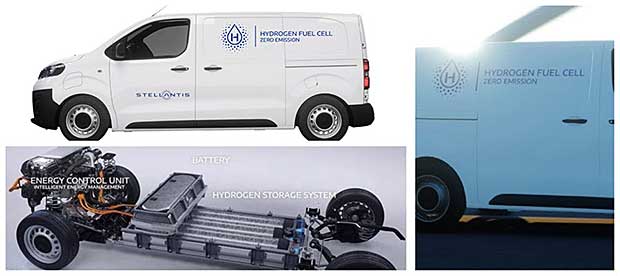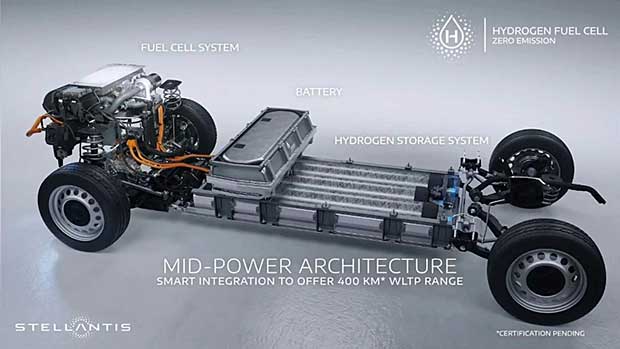
Stellantis is in the process of developing a hydrogen fuel cell vehicle. The company’s light commercial vehicle (LCV) range will offer a useful alternative to their battery-powered solutions on the market. They believe that this set of LCVs would offer an affordable solution without losing any natural power of having to worry about the environmental impact.
While useful for some LCVs, battery-operated vehicles are not always strong enough to do the job as intended. LCV customers have been asking for longer range, greater power, and lesser charge times – something that hydrogen fuel cells would offer. They believe, then, that their new range of LCVs can offer more power, quicker re-powering, and a range over the 249-mile range that customers are asking for.
The development of a mid-powered fuel cell system which will be integrated outside of cargo space has been well-received by enthusiasts. By working this system into the current LCVs, too, Stellantis avoids having to go through a massive change in the design of their current models. This allows for the battery and hydrogen versions to contain huge similarities in their design and their structure, thus avoiding massive costs in training and retooling.

When will these Stellantis developments be on the market?
At the moment, the group is working with Faurecia and Symbio, working as a trio to come up with everything that is needed. Faurecia will focus their work on the development of hydrogen storage systems to be used within the hardware. Symbio will continue to work with Stellantis on the development of a low-weight fuel cell system that can deliver as much as 45kW gross power.
These systems will be produced primarily in France, though at the moment there is no solid release date for the vehicles. The hope, though, is that previous collaboration between Faurecia and Stellantis should lead to an optimized, improved system design. They also hope that this will allow for the development of a system that can retain the best-in-class weight-to-performance ratio out there at the moment.
For those who have been waiting for a big change in how LCVs are managed, then, this should provide a very interesting and tantalizing prospect.
With such an important development now in place, we expect to see more Stellantis products – powered by battery or fuel cell – to be on the market in the coming months and years.
Citation
https://www.greencarcongress.com/2021/04/20210406-stellantis.html